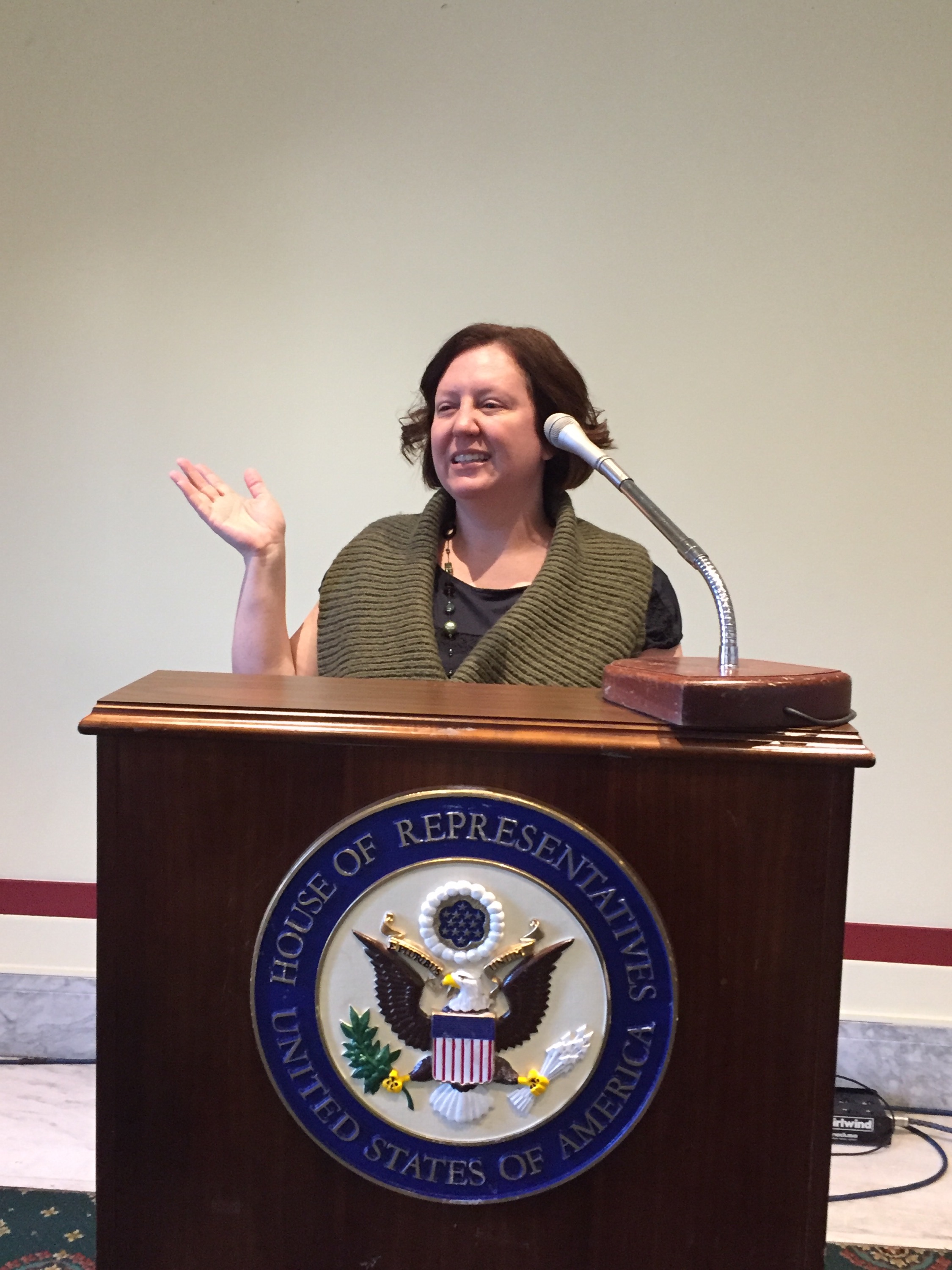UHCL professor briefs D.C. policymakers on social-justice issues
At the invitation of lawmakers and policymakers, University of Houston-Clear Lake Professor of Women’s Studies and Psychology Kim A. Case traveled to Washington, D.C. this fall to discuss diversity and inclusiveness of the LGBTQ community. But inclusiveness is easier said than done, Case says, who has made it her mission to study the inherent danger of reducing society’s members to a series of checkboxes in attempts to categorize them. It’s too easy for whole groups of people to fall through the cracks, she says.

At the October luncheon, Case spoke to 90 U.S. Congress legislative staffers and federal agency representatives about the discrimination of people who identify as LGBTQ and the risks they face in schools and the workplace, their physical and mental health, violence and homelessness. Case was asked to speak in behalf of the Society for the Psychological Study of Social Issues, which puts on legislative seminars on policy issues.
Case invited a colleague, Kevin Leo Yabut Nadal, associate professor of psychology at The City of New York College’s John Jay College of Criminal Justice, to present with her.
“We tried to keep it pretty basic. We just tried to remind them on every [presentation] slide, ‘Here’s the data we have. We know that gay men make less in salary than heterosexual men. That’s about where the data stop,’ ” Case said.
Case said that there are large gaps in the data collection which result in large gaps in our understanding of underserved populations.
“Marginalized groups are very invisible.”
She said that as a society, “we’re well-trained not to notice. We tend to say, ‘If it doesn’t affect me, it isn’t an issue.’
“We don’t have a lot of information on lesbian versus heterosexual women – or bisexuals, especially, we don’t ask about that. We don’t have a lot of information on transgender salaries versus people who aren’t transgender. We sort of guess that they’re probably affected by that. We do know they get fired more often or get denied hire.”
She cited one study which showed that a man who transitions to a woman loses about one-third of her salary potential.
“There’s so much to find out. What if you’re a person of color and you’re lesbian? What if you’re disabled and transgender? So many things to explore,” she said.
Case explains that because people have multifaceted identities they fit definitions of multiple demographics – sometimes to their disadvantage, by misunderstanding, exclusion or outright animosity. The interconnected nature of social categorizations – with specific regard to how they exacerbate overlapping and interdependent systems of discrimination – is called intersectionality, which is Case’s expertise.
She explained that in the ’60s and ’70s, many White feminist activists failed to recognize that minority women were being left out of the gains being made by the movement.
“A lot of people were saying, ‘Hey we’re over here! You’re not including us!’ Lesbian women, women of color. There’s still a lot of that struggle. And that’s influenced how social psychology has approached the topics – especially social psychologists who are looking at social justice issues,” she said.
She credited the black feminist movement of the ’90s for moving intersectionality from an unstudied phenomenon to a social science discipline that studied the relationship between sexism, class oppression, racism, gender identity and power structures.
“Intersectionality has become an interesting beast in the scholarship,” Case said. “It’s become a buzzword that everyone wants to use and it’s really popular right now. Intersectionality looks at power systems and institutional structures, which include law and public policy – why certain people can’t get access to certain things at certain points. That’s what we wanted to help policymakers think through,” she said.
She said that they also met separately with the House LGBT Equality political caucus for a legislative update. “So we said, ‘What do you need more of from us? Do you need more statistics? Do you need stories? Do you need qualitative work?’ They basically said, ‘We need everything.’ There’s a lot to do. It’s not like I’m going to run out of things to investigate anytime soon.”
Case has written two books on intersectionality. Just-published “Intersectional Pedagogy” explores best practices for effective teaching and learning about intersections of identity as informed by intersectional theory. In 2013, she published “Deconstructing Privilege: Teaching and Learning as Allies in the Classroom,” which explores practices for teaching and learning about various forms of systematic group privilege.
“We’re studying these things so hopefully humanity can do a better job with itself,” she said.
To find out more about UHCL’s College of Human Sciences and Humanities and opportunities, visit www.uhcl.edu/hsh.

